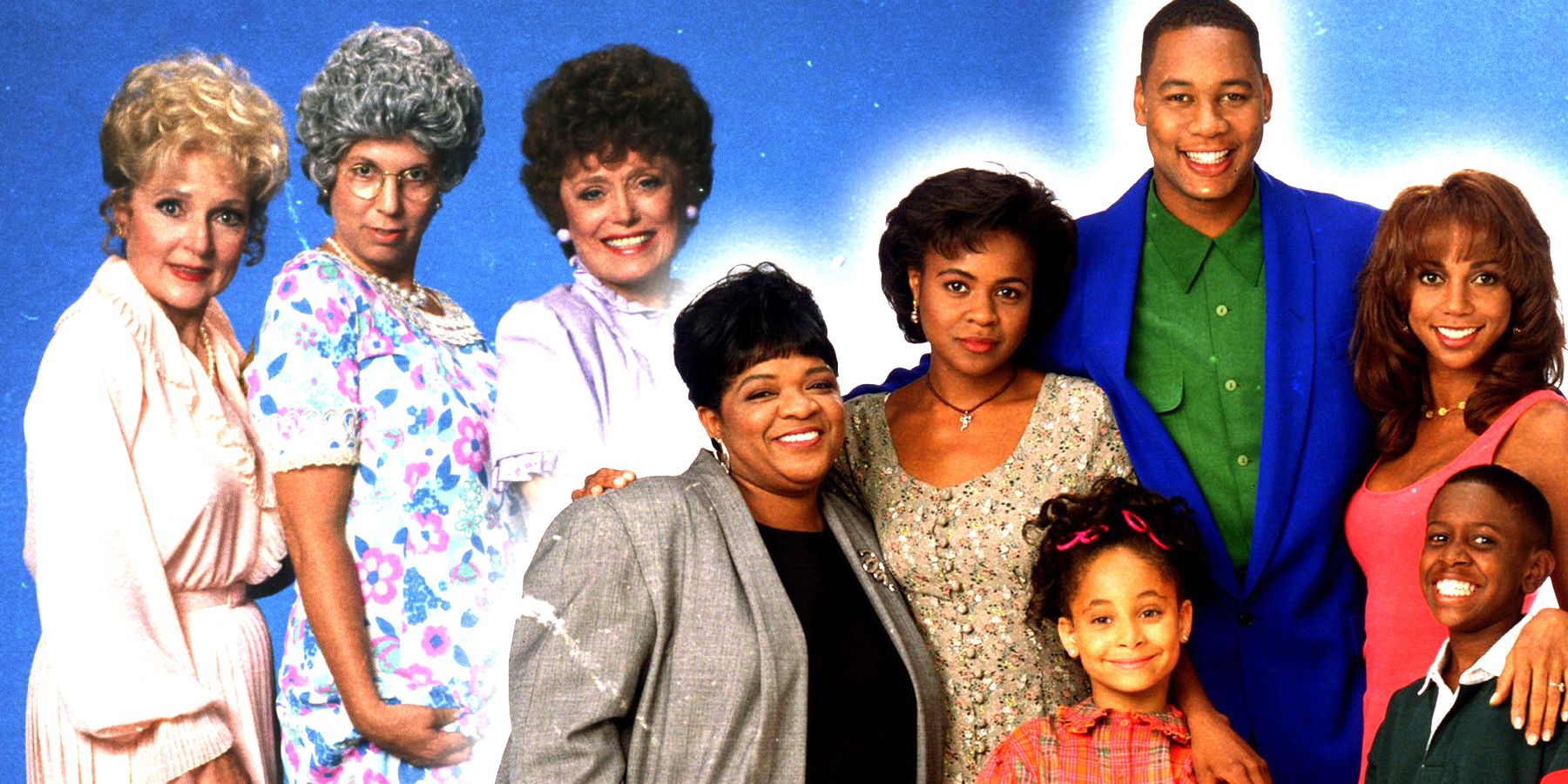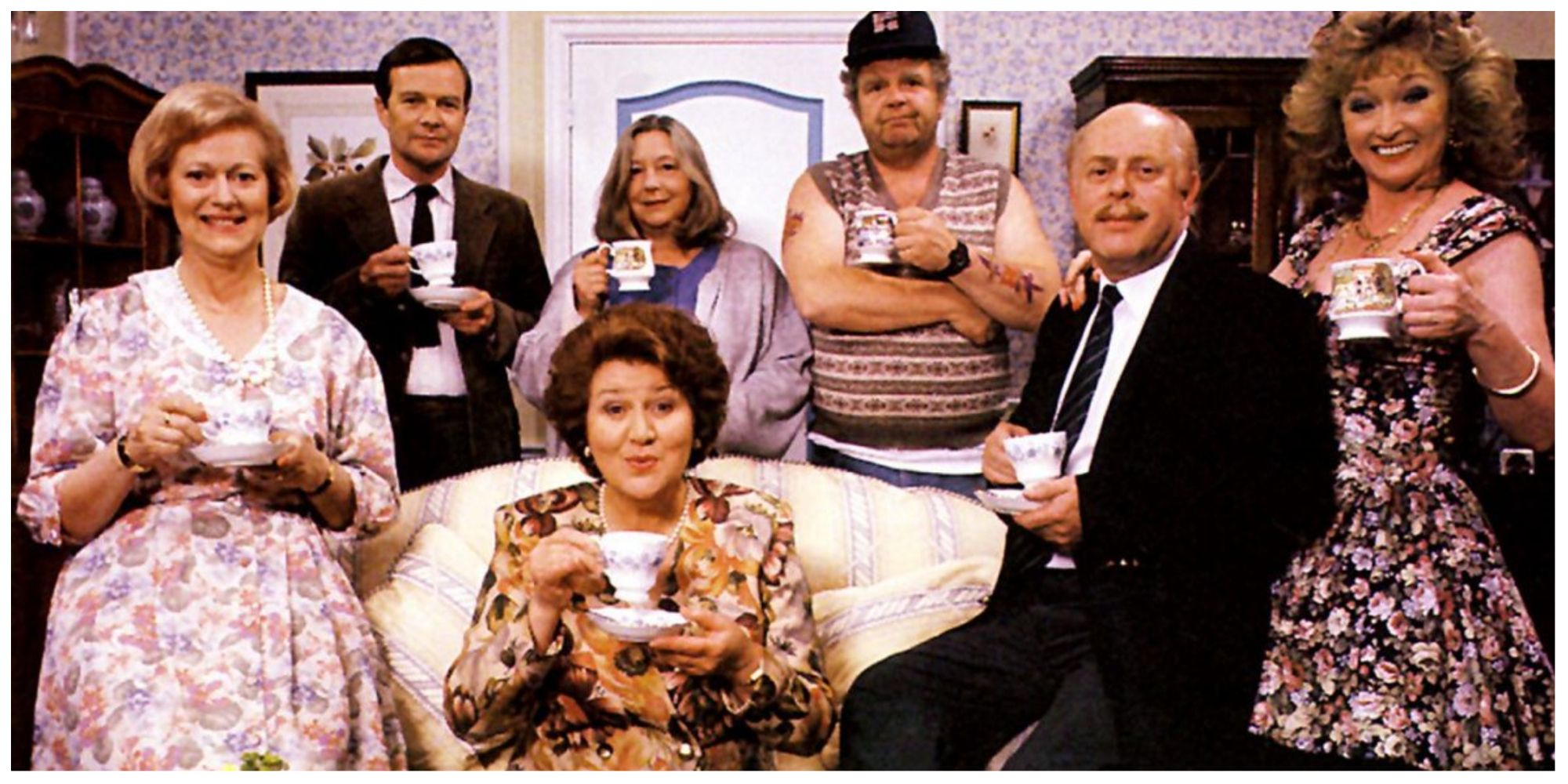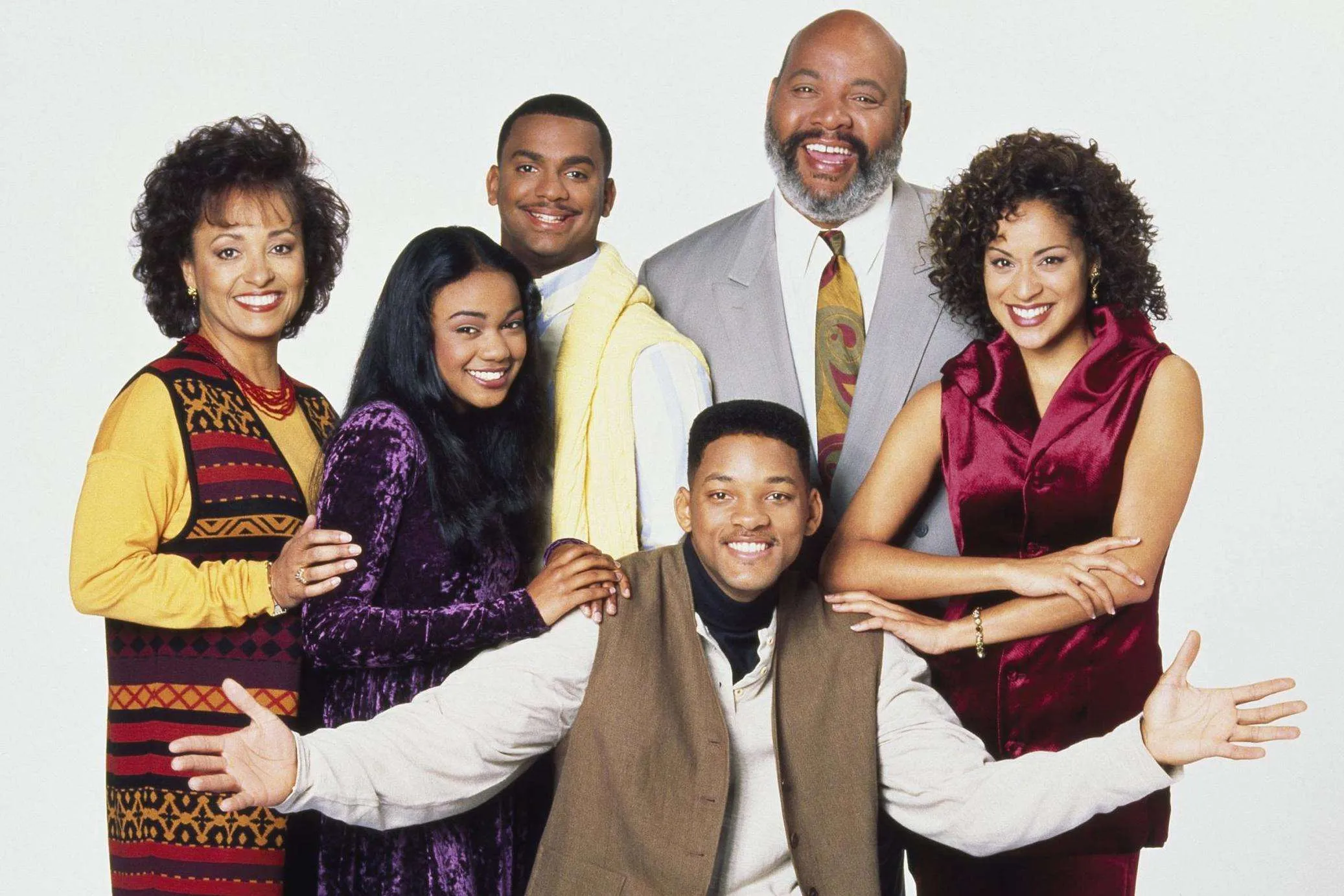The Golden Age: Why 70s Sitcoms Still Rule Television
The 1970s was a vibrant era for television, birthing numerous sitcoms that entertained audiences with humor and wit, leaving an indelible mark on popular culture. This decade, often remembered for bell bottoms, disco, and the rise of video games, truly shined in its television offerings, especially when it came to situation comedies. It was a period of immense innovation, where the traditional sitcom formula was challenged and expanded, paving the way for more nuanced and socially conscious storytelling.
While some shows became cultural icons that remain beloved to this day, others, despite their brilliance, faded into obscurity. Yet, for those looking for classic '70s situation comedy, this era delivered an unparalleled blend of groundbreaking social commentary and pure, unadulterated hilarity that continues to resonate. From tackling controversial topics to simply providing wholesome family entertainment, the sitcoms of the 70s were a reflection of a changing America, offering both escapism and a mirror to society.
Table of Contents
- The Dawn of a New Era: Sitcoms of the 70s Redefine Television
- Juggernauts and Cultural Icons: The Unforgettable 70s Sitcoms
- Beyond the Mainstream: Hidden Gems and Forgotten Sitcoms of the 70s
- The Spectrum of Humor: From Slapstick to Social Commentary
- Ranking the Best: A Look at Top 70s Sitcoms
- CBS and the 70s Sitcom Landscape
- The Enduring Legacy of 70s Sitcoms
- Behind the Scenes: Key Figures and Their Influence
The Dawn of a New Era: Sitcoms of the 70s Redefine Television
The 1970s marked a pivotal period for the sitcom genre, ushering in an era of unprecedented innovation and variety in the television market. Unlike previous decades that often relied on formulaic domestic comedies, the 70s saw a dramatic shift towards more complex characters, challenging narratives, and a broader spectrum of humor. Throughout the 1970s, there was great innovation and variety in the sitcom market, reflecting the rapidly changing social landscape of America. This wasn't just a minor evolution; it was a revolution. More than 100 new sitcoms were aired in the United States during this time, a testament to the industry's willingness to experiment and audiences' hunger for fresh, relevant content. From the very first of many classic 1970s TV sitcoms that the decade gave us, it was clear that television was evolving beyond mere escapism. These shows began to tackle real-world issues, sparking conversations in living rooms across the nation and demonstrating the power of comedy to address serious topics. The era saw the rise of shows that were not afraid to push boundaries, laying the groundwork for much of the character-driven and socially aware comedy we see today. The sheer volume and diversity of these new sitcoms ensured that there was something for everyone, from the most politically charged humor to lighthearted family fare, truly cementing the 70s as a golden age for the genre.
- Daniel Craig Broadway
- Willy Wonka Animated
- Kelly Rippa Bikini
- Girlfriend Sexy
- Pauletta Washington Net Worth
Juggernauts and Cultural Icons: The Unforgettable 70s Sitcoms
Among the multitude of new shows, a select few rose to become cultural behemoths, drawing in millions of viewers weekly and profoundly influencing the national dialogue. Shows such as “All in the Family” and “The Mary Tyler Moore Show” were juggernauts that pulled millions of viewers weekly, becoming household names and enduring symbols of the decade. These weren't just popular; they were revolutionary, redefining what a sitcom could be and proving that television could be both entertaining and thought-provoking. Their success lay in their ability to reflect contemporary society with unflinching honesty, addressing issues that had previously been taboo on mainstream television. The impact of these sitcoms of the 70s extended far beyond mere entertainment, shaping public opinion and fostering discussions on sensitive subjects. They provided a platform for diverse voices and perspectives, cementing their status not just as television programs, but as significant cultural artifacts.
"All in the Family": Breaking Barriers with Laughter
Spearheaded by the visionary producer Norman Lear, "All in the Family" burst onto the scene in 1971 and immediately became a phenomenon. It centered on the bigoted, working-class patriarch Archie Bunker and his interactions with his liberal daughter Gloria, her progressive husband Mike, and his long-suffering wife Edith. The show was audacious, tackling sensitive and often controversial subjects head-on, until these shows came along, topics like race relations, divorce/single parents, alcoholism, women's rights, homosexuality, and abortion were rarely, if ever, discussed in a mainstream comedic format. Norman Lear, along with writers like Eric Monte and Mike Evans, created a show that used humor to confront prejudice and challenge societal norms, forcing audiences to confront their own biases. The arguments and debates within the Bunker household mirrored those happening in real American homes, making the show incredibly relatable despite its often-shocking content. Its groundbreaking approach not only earned it critical acclaim and numerous awards but also paved the way for other socially conscious sitcoms, firmly establishing it as one of the best of the decade and a true pioneer among sitcoms of the 70s.
"The Mary Tyler Moore Show": A Woman's Place in the 70s
Another groundbreaking series was "The Mary Tyler Moore Show," which debuted in 1970. This sitcom offered a refreshingly modern portrayal of an independent, single career woman in the 1970s. Mary, who we last saw as Laura Petrie on The Dick Van Dyke Show, is back as Mary Richards, associate producer at WJM News in Minneapolis. The show depicted Mary's professional and personal life with warmth, wit, and intelligence, moving beyond the traditional roles often assigned to women in television. The Cast of The Mary Tyler Moore Show, 1970, captured the essence of a vibrant newsroom and the camaraderie among its diverse characters. It explored themes of female independence, workplace dynamics, and the challenges of being a single woman in a big city, all while maintaining a sharp comedic edge. The series was celebrated for its smart writing, strong ensemble cast, and its subtle yet powerful commentary on women's liberation. It demonstrated that a woman's story could be the central focus of a highly successful sitcom, proving to be just as influential in its own way as "All in the Family" in shaping the landscape of sitcoms of the 70s and beyond.
- Alexis And Martha Stewart
- Anne Stringfield
- Monty Python Holy Grail Cast
- Christopher Reeves Kids
- Is James Brolin Still Alive
Beyond the Mainstream: Hidden Gems and Forgotten Sitcoms of the 70s
While the decade produced undeniable classics, the 1970s were also filled with sitcoms that captured audiences for a brief moment before vanishing into obscurity. While some shows became cultural icons, others faded into obscurity, despite often possessing considerable merit. In this blog post, we explore 23 sitcoms from the 1970s that barely anyone remembers today, offering a fascinating glimpse into the broader television landscape of the era. These hidden gems, though not as celebrated, offer a delightful glimpse into the diverse range of comedic styles and storytelling approaches that flourished during this period. Some were canceled too soon, perhaps ahead of their time or victims of network politics, while others were simply products of their time, their humor or themes not quite translating to enduring appeal. While they may not have lasted for decades in syndication, for a short while, they were some of the biggest shows on TV—until they weren’t. Yet, for the discerning viewer, rediscovering these forgotten sitcoms of the 70s can be a rewarding experience, revealing forgotten talent, innovative concepts, and a deeper understanding of the decade's cultural nuances. They serve as a reminder that popularity isn't always the sole measure of quality or historical significance.
The Spectrum of Humor: From Slapstick to Social Commentary
The 70s sitcom landscape was incredibly diverse, showcasing a wide spectrum of comedic styles. Don’t get us wrong, there were still lots of dopey comedies as well, catering to audiences who preferred lighter, more straightforward humor. Ted Bessell’s "Me and the Chimp" and the sitcom/variety hybrid "The Brady Bunch Hour" come to mind as examples of shows that leaned into more absurd or family-friendly fare, perhaps lacking the sharp social commentary of their counterparts but still providing laughs. However, alongside these, shows like "Laverne & Shirley" (a popular spin-off from "Happy Days") captivated audiences with their physical comedy and character-driven humor, focusing on the antics of two working-class women. This rich tapestry of humor meant that whether you sought politically charged satire or simple, silly slapstick, the sitcoms of the 70s had something to offer. This era proved that comedy was not a monolithic entity but a versatile tool that could be used to entertain, provoke, and reflect the multifaceted nature of human experience. The sheer variety underscores why many consider it perhaps the greatest decade for sitcoms of all time.
British Invasion: When 70s British Sitcoms Crossed the Pond
The influence of 70s British comedy shows on their American counterparts is also noteworthy. Some top '70s British comedy shows were full of silly slapstick comedy, while others veered more towards politically incorrect humor, often pushing boundaries even further than their American cousins. What British 1970s TV comedies will you find on this list? Shows like "Fawlty Towers" were a favorite comedy show among critics and fans, celebrated for its masterful farcical plots and the brilliant performance of John Cleese. Its sharp wit and chaotic humor set a high bar for comedic writing. Interestingly, a few of the funniest 1970s British sitcoms were even adapted into American comedies, demonstrating the universal appeal of their comedic premises and characters. While not always a direct translation, these adaptations highlighted the cross-cultural exchange of comedic ideas and the shared desire for laughter, regardless of accent or setting. This transatlantic influence further enriched the overall landscape of sitcoms of the 70s, proving that good humor knows no geographical boundaries.
Ranking the Best: A Look at Top 70s Sitcoms
Discussions about the "best" of any era are inherently subjective, but the 1970s consistently feature highly in any ranking of sitcoms. Many lists attempt to quantify this golden age, with titles like "15 best sitcoms of the 70s ranked" or "Here are the top 10 sitcoms of the ‘70s—perhaps the greatest decade for sitcoms of all time." The sheer quality and enduring appeal of these shows make such rankings a perennial topic of debate among television enthusiasts. The 10 best '70s sitcoms, ranked, often include shows that not only achieved massive popularity but also left a lasting cultural footprint. Beyond "All in the Family" and "The Mary Tyler Moore Show," other highly acclaimed sitcoms of the 70s include "The Jeffersons," which spun off from "All in the Family" to explore themes of upward mobility and race with its own unique comedic voice. Shows like "M*A*S*H," while technically a dramedy, is frequently cited for its brilliant blend of humor and poignant social commentary, often making these "best of" lists. These rankings underscore the incredible depth and breadth of talent and creativity that defined the decade, showcasing why the 70s are so often celebrated as the pinnacle of sitcom production.
CBS and the 70s Sitcom Landscape
When discussing the dominance of 70s sitcoms, it's impossible to overlook the pivotal role played by CBS. The network became a powerhouse for groundbreaking and popular comedies, largely due to the programming vision that embraced the new wave of socially relevant humor. The best 1970s CBS shows come in all shapes and sizes, proving that the network wasn't afraid to diversify its content. While it's not just one genre that defined their success, and some of the good 70s CBS series on this list are dramas, the network's strength in comedy was undeniable. Many of the best 1970s CBS TV series were sitcoms that consistently topped the ratings and garnered critical acclaim. They understood that the best of the best is all about variety and quality. CBS provided a platform for shows that challenged conventions and reflected the complexities of American life, often featuring diverse casts and tackling topics previously considered too sensitive for television. This strategic focus on innovative and relatable sitcoms allowed CBS to cultivate a loyal viewership and solidify its reputation as a leader in television entertainment throughout the decade, contributing immensely to the golden age of sitcoms of the 70s.
The Enduring Legacy of 70s Sitcoms
The influence of 70s sitcoms extends far beyond their original air dates. The ‘70s were filled with sitcoms that captured audiences for a brief moment before vanishing into obscurity. Some were canceled too soon, their potential unfulfilled, while others were simply products of their time, their humor or themes not quite translating to enduring appeal.
- Julie Newmar
- Was Andy Griffith Mean
- Michael J Fox Brother
- When Did Pat Boone Die
- What Was The Cause Of Natalie Coles Death

10 Classic Sitcoms You Forgot Existed

10 Best British Sitcoms

15 Historical Black Sitcoms | Black Excellence